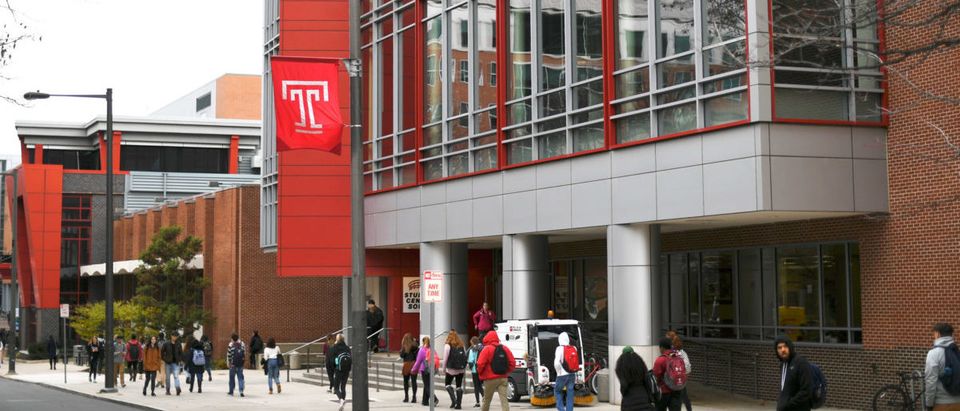The higher education establishment often promotes the idea that their effort to corner markets, maximize revenue from consumers, and destroy competition is all done in good faith out of compassion for the students they serve. After all, universities are nonprofits, therefore (or at least so the implication suggests) they are nothing like those terrible for-profit businesses in the proprietary education sector.
But “nonprofit” is only a tax designation — it’s certainly not a business model. Universities obviously profit. The only real difference between for-profits and nonprofits is where the profit goes. Instead of distributing profit to shareholders like a for-profit business, nonprofit universities can reinvest in luxury student amenities, state-of-the-art athletic facilities, and other capital improvements not necessarily related to student academic achievement, not to mention administrator salaries, all the while using these expenses to justify charging increasingly higher tuition.
Just like so many powerful industries, the higher education establishment is calculating and cutthroat, which is why they have been using whatever means possible to destroy their biggest competitor: the for-profit college sector. And Democrats, recognizing the political importance of protecting the interests of their most effective indoctrination centers, are happy to help them do it.
“For-profit” colleges, also called proprietary colleges, have been at the forefront of educational innovation. They were the pioneers of online classes that allow transient students like members of our armed services to take classes no matter where they are stationed, even upon relocation. They offer non-traditional students flexible class schedules to meet their needs. They also offer opportunities — and in some cases the only opportunities — to lower-income Americans who often need to work full-time while attending school, a cohort that has been all but shut out by the higher education establishment.
The results for these students who attend proprietary colleges are similar to their peers in nonprofit and public colleges — and these students even perform better in some key areas. However, even though their tuition and results are competitive with other forms of post-secondary education, proprietary colleges, in general, attract a lot of unfair criticism. Just like in every other industry, disruptors face fierce opposition from existing businesses aiming to protect their market share. It’s no different in the post-secondary education sector.
In fact, there is an entire special interest lobby devoted to undermining proprietary colleges and regulating them out of existence. Rather than potentially lose market share and be forced to compete, the higher education establishment would prefer to use the power of the state to severely weaken or even bankrupt their competitors. They have enlisted the help of politicians like Democratic Illinois Sen. Dick Durbin, who has seemingly made it his personal mission to block proprietary colleges from receiving GI Bill funding, effectively denying access to education for thousands of veterans.
They also created an organization called Veterans Education Success (VES) to help politicians like “Tricky Dick” sell the con. VES is supposedly nonpartisan but is funded by radical liberal donors and is led by Carrie Wofford, a Democratic activist who previously served as a Health, Education, Labor and Pensions Committee staffer, when the committee spent much of its time waging a quixotic war against proprietary colleges.
VES claims to be a veterans advocacy organization, but sadly focuses its efforts almost exclusively on advancing a left-wing political agenda and protecting the higher education establishment’s monopoly.
Of course, no left-wing special interest effort is complete without the involvement of morally suspect individuals and backroom deals — in this case, the shadowy dealings in question include the existence of an elaborate short-selling profit scheme involving former Obama Department of Education official Robert Shireman and The Institute for College Access & Success (TICAS), a group pushing for more onerous regulations on proprietary colleges. Shireman, who served as the deputy under secretary of education from 2009 to 2010, was placed under investigation for allegedly coordinating with an investment research firm tied to famous short-seller Steve Eisman from “The Big Short.”
Findings from the Department of Education Inspector General showed officials made plans to “selectively leak” news of their regulatory crackdown on proprietary colleges — which could give short sellers a major opportunity — prior to the regulations being made official.
You’d be forgiven for thinking that sounds like insider trading, but in Washington, there are different rules for different folks. This type of corruption is sadly typical. In 2013, in a story clearly implicating him in the leaks, The Wall Street Journal reported that Shireman and DOE officials had still not turned over all emails and documents that had been requested. But to date, no action has been taken against Shireman, or TICAS, or Eisman, or anyone else (allegedly) involved in the short-selling scheme. They (allegedly) got away with it.
Behind almost every alarmist cause is a profit motive, and it’s no different in this case. While it’s true there have previously been some bad actors in the for-profit education field, these institutions have, rightly, been rooted out to protect the interests of students enrolled in them.
However, painting the entire sector with the broad brush of “corruption” because of the malfeasance of a few is akin to claiming the entire medical community is at fault when a particular physician commits malpractice. We don’t do that with medical professionals or institutions, and neither should it be our practice with the education sector — especially as a cynical ploy to shut down the competition by compromised parties with an obvious conflict of interest.
Will anyone stand up against the higher education monopoly? Will anyone argue in favor of innovation and open markets? Will anyone fight back? If we care about access to education for non-traditional students and veterans, we should certainly hope so.
Terry Schilling (@Schilling1776) is the executive director of American Principles Project, a conservative nonprofit group dedicated to putting human dignity at the heart of public policy.
The views and opinions expressed in this commentary are those of the author and do not reflect the official position of The Daily Caller.


